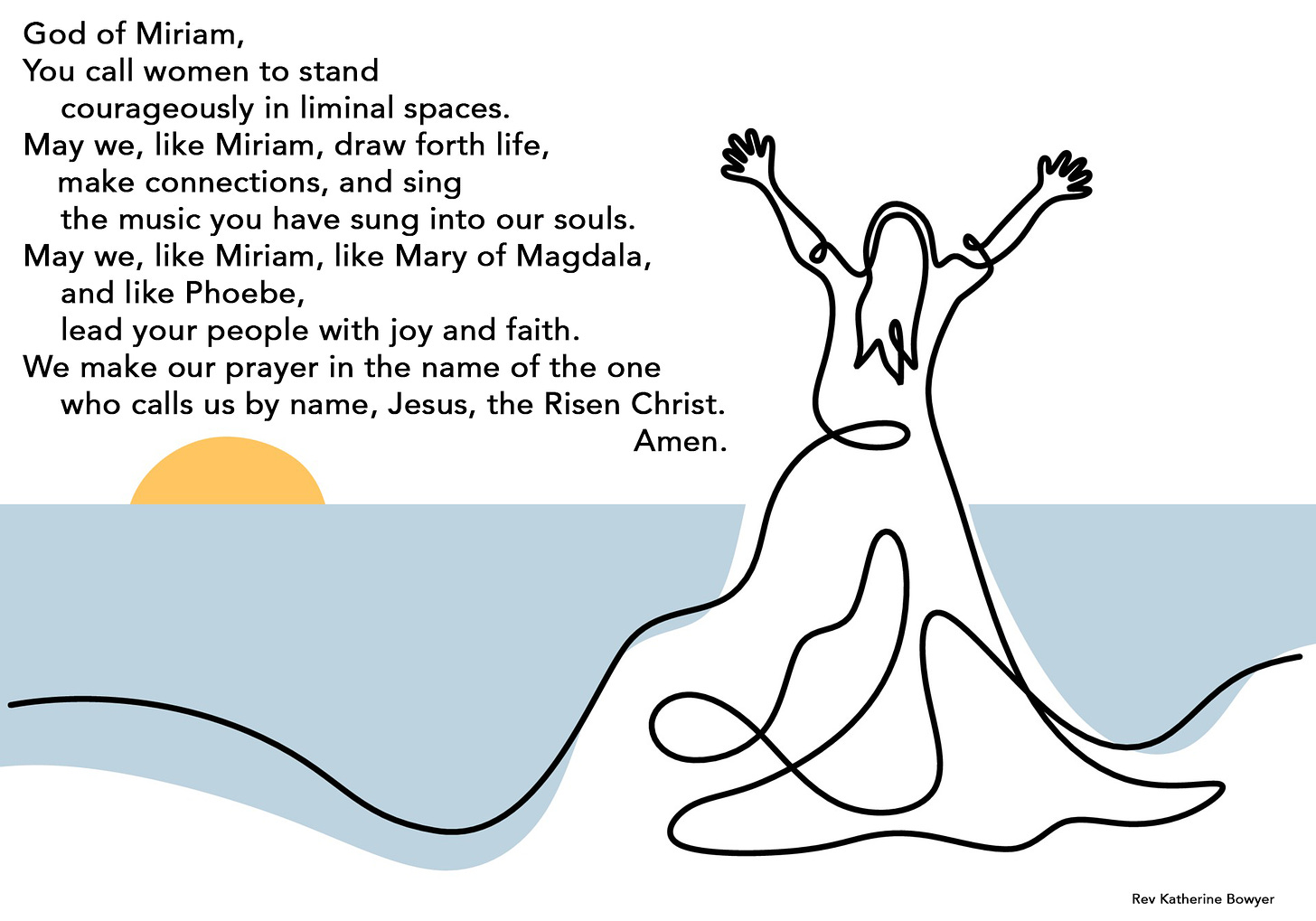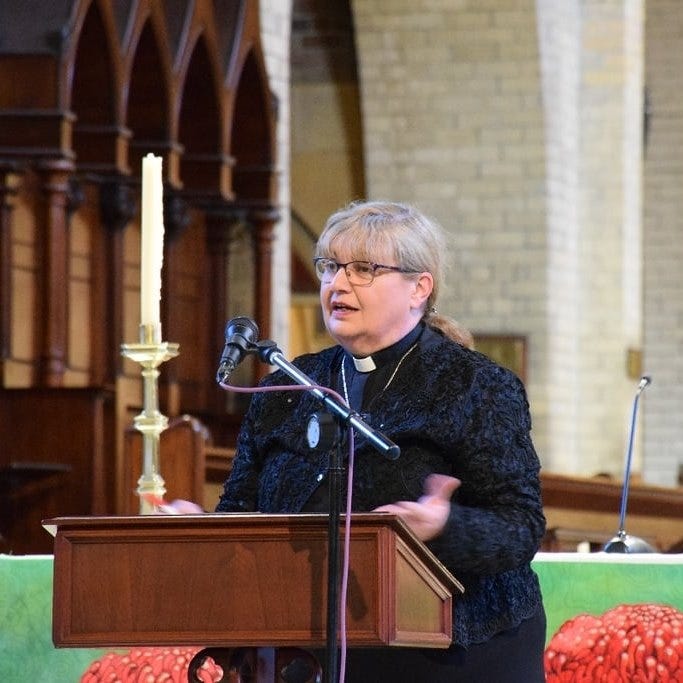When we think about the Exilic wilderness, we picture the crossing of the Red (Reed) Sea, Moses’ [in a Charlton Heston-esque pose] parting the waters, and the wholesale drowning of the Egyptian army. Yet the story of being in the wilderness begins much earlier: Exodus 1:8 tells us that “then there came a Pharoah who knew not Joseph”, and so the wilderness years begin.
Here we meet Miriam.
Moses is the great Patriarchal actor in this story, but Miriam, and her navigation of these new lands, is just as important. Indeed, without the agency of three women: Moses’ mother, Pharoah’s daughter, and Miriam who is the connection between these women and essentially saves her brother’s life, we would not find ourselves standing triumphant and victorious on the other shore.
The daring courage of women way-finding in this new world of oppression cannot be overestimated. The midwives, Shiphrah and Puah, defy the genocidal edict in Exodus 1:15-21. Then Miriam, taking a lead perhaps from the risk taking of her mother, keeps watch over her brother’s ark. Miriam has the quick-witted strength to give voice to a solution to Pharoah’s daughter – who equally takes risks as she embraces the child she names Moses, and provides for his life.
On the edge of the Red Sea, we encounter Miriam the prophet again. Just as she was a wise woman on the edge of the river, ensuring her brother’s survival, so here she is once again midwife, bringing people from death to life, crossing the liminal space.
Miriam makes connections. She is as comfortable dwelling on the margins as she is talking with Pharoah’s daughter or leading the women in song. Miriam knows her message and sticks with it. Miriam is not afraid to be the go-between, nor is she afraid to be a prophet of hope and joy. Miriam knows what it is to observe and trusts her judgement in the moment, as equally as she remains steadfast in her exercise of her leadership.
Throughout, though, Miriam is not afraid to be seen and to be known. Unusually for Scripture, Miriam is not defined as someone’s wife or mother. Whilst she is Moses’ sister (and let’s not forget he owes his life to her), she is also simply able to be: a prophet in her own right.
The Prophet who sings.
Last year I found this poem by Rabbi Ruth H. Sohn. It describes the moment Miriam found her song in the wilderness.
l, Miriam, stand at the sea
and turn
to face the desert stretching endless and still.
My eyes are dazzled
The sky brilliant blue
Sunburnt sands unyielding white.
My hands turn to dove wings.
My arms
reach
for the sky
and I want to sing
the song rising inside me.
My mouth open
I stop.
Where are the words?
Where the melody?
In a moment of panic
My eyes go blind.
Can I take a step
Without knowing a Destination?
Will I falter
Will I fall
Will the ground sink away from under me?
The song still unformed—
How can I sing?
To take the first step—
To sing a new song
to close one's eyes and dive
into unknown waters.
For a moment knowing nothing risking all-
But then to discover
The waters are friendly
The ground is firm.
And the song-
the song rises again.
Out of my mouth
come words lifting the wind.
And I hear
for the first time
the song
that has been in my heart
silent
unknown
even to me.
By Rabbi Ruth H. SohnMay we always, like Miriam, sing our God-given song.
Let’s pray:
God of Miriam, You call women to courageously stand in liminal spaces. May we, like Miriam, draw forth life, make connections, and sing the song you have planted within us. May we, like Miriam, like Mary of Magdala, and like Phoebe, lead your people with joy and faith. We make our prayer in the name of the one who calls us by name, Jesus, the Risen Christ. Amen.
With Love from Rev Margaret
Katherine Bowyer is the current Dean of Newcastle, NSW. Katherine is passionate about people encountering the living God, and growing in relationship with God and with one another. Katherine is fully committed to our churches being safe, healthy, inclusive, vibrant places at the heart of community life, welcoming and nurturing all people in faith. She values the diversity of Anglican expression, and is committed to the journey of Makarrata - Reconciliation.
Katherine is nourished by her family, owned by her cats, prefers Russian Caravan Tea, collects Ladybird Books, and believes poetry and music are glimpses of the glory of God.
View draft history
Settings





